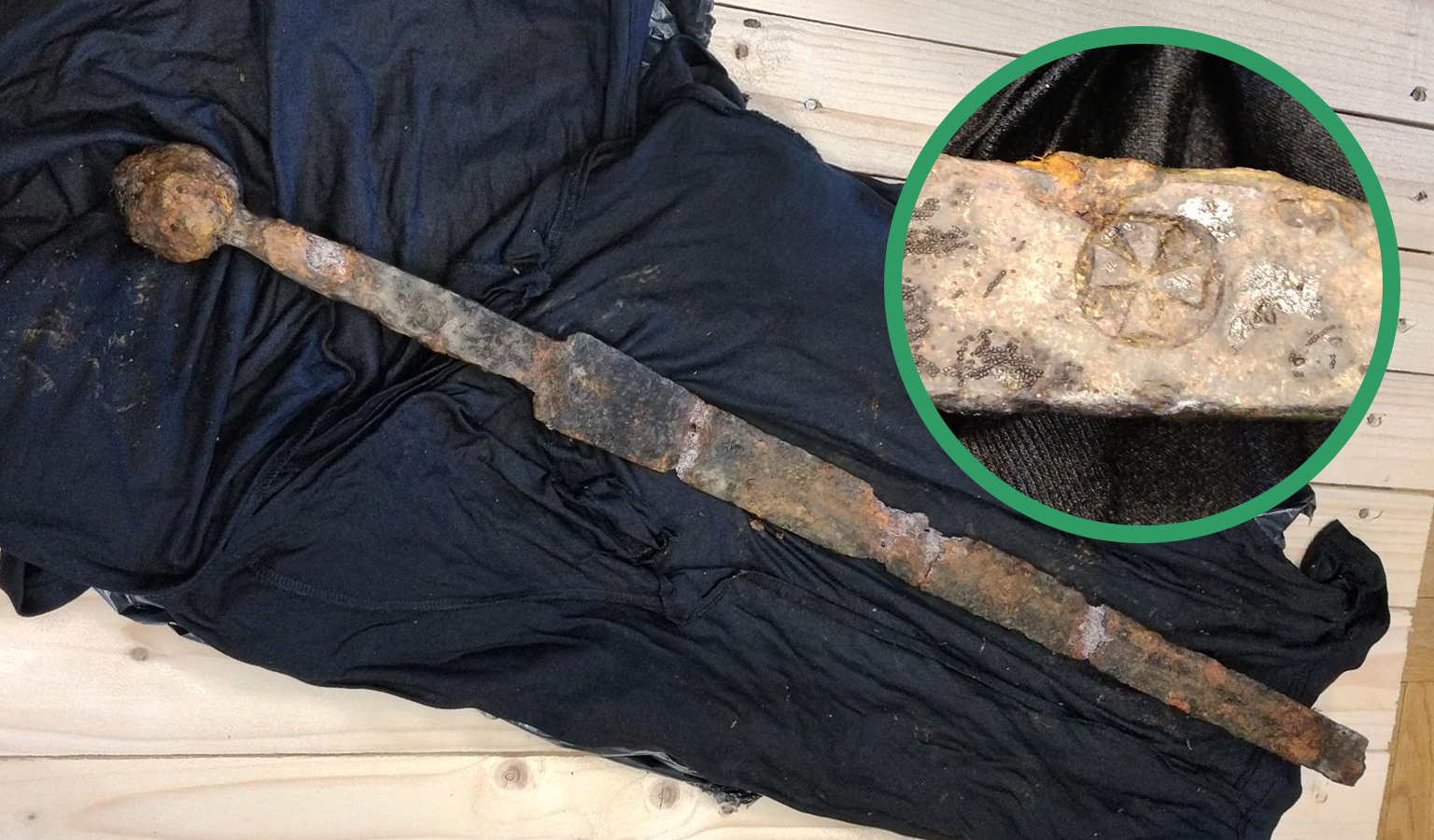An angler fishing in the Vistula River in Warsaw has made an unexpected discovery, a medieval sword dating back hundreds of years.
The sword, now under the care of the Warsaw Conservator of Monuments, is remarkably well-preserved, with its blade, handle, and pommel all fully intact.
On the handle is a cross symbol, similar in design to the Maltese cross used by the Knights Hospitaller or the Templar cross, however, any connection to these religious orders is speculated at this time.
While the Knights Hospitaller did have a presence in Poland, there are no documented cases of the order operating from Warsaw. The same can also be said for the Knights Templar, the religious military order of the Catholic Church.
The fisherman discovered the sword protruding from the riverbed sediment in Tarchomin, a district in northern Warsaw. It is likely that the sword was carried downstream by the Vistula, an aggrading river often subject to subject to channel changing.
Michał Krasucki from the Conservator of Monuments said, “It is not yet known where the sword came from. The Vistula still holds many secrets.”
He also clarified that all objects found in the ground or water are legally the property of the State Treasury. Any discoveries of historical or artistic significance (particularly those over 300 years old) must be reported to the appropriate authorities.
The sword will be transferred to the Metal Conservation Workshop at the State Archaeological Museum, where specialists will carry out its conservation and work to uncover its mysterious origins.
Header Image Credit : PAP
Sources : Science In Poland





